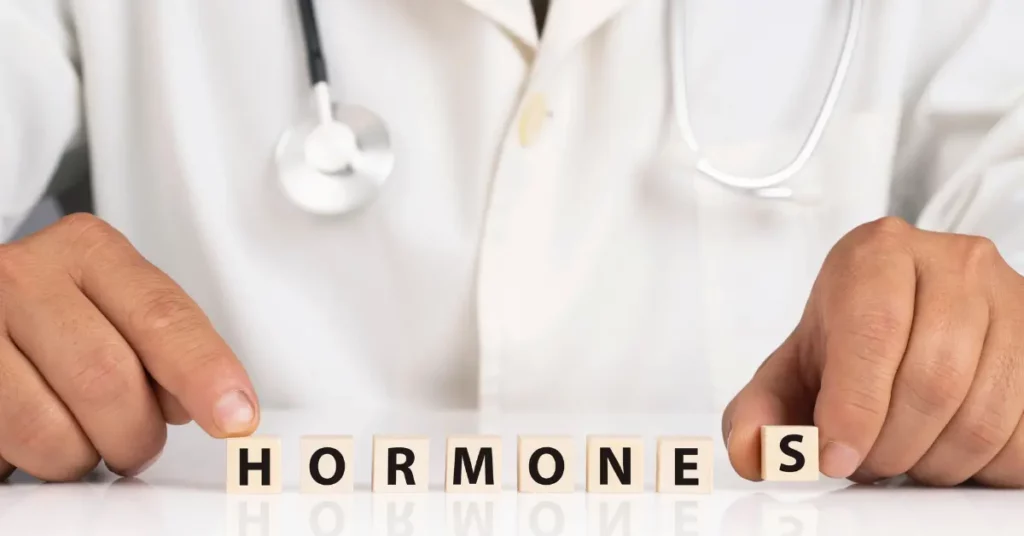Why Do Women Have Periods? The Importance of Menstruation
Every month, from puberty to Menopause, a woman’s body goes through an interesting process called the menstrual cycle.
This cycle is completely natural and very important for a woman’s reproductive health.
It involves a series of changes that prepare the body in case there’s a chance of getting pregnant.
These changes can happen due to hormonal changes, the preparation of the body for pregnancy, and more.
Read on as we explore the question: “Why do women have periods?”
Why do females have periods
Women experience periods as a fundamental aspect of their menstrual cycle, a natural and vital process.
The primary reason for the occurrence of periods is:
Hormonal changes

Hormonal changes play a crucial role in initiating menstrual periods.
Specifically, the ovaries release essential female hormones, primarily Estrogen and Progesterone, which are pivotal in regulating the menstrual cycle.
These hormones are responsible for initiating and maintaining various menstrual cycle stages.
A complex interplay of hormones effectively regulates the menstrual cycle.
Two key hormones, the Luteinizing hormone and the Follicle-Stimulating hormone, originate from the pituitary gland.
These hormones trigger ovulation and prompt the ovaries to generate Estrogen and Progesterone.
In response to these hormonal cues, Estrogen and Progesterone work together to stimulate the uterus and breasts in preparation for possible fertilization.
Preparation for pregnancy
The menstrual cycle is a complex interplay between the pituitary gland, ovaries, and uterus, preparing the body for pregnancy.
This intricate process includes the production of an egg.
Additionally, it involves the thickening of the uterine lining and hormonal adjustments that prepare the vagina and cervix to facilitate the acceptance and support of sperm.
Should fertilization occur, the fertilized egg attaches itself to the uterine wall, initiating the development of a fetus.
Discarding the uterine lining
When pregnancy does not take place, the body no longer requires the thickened uterine lining that had been prepared.
Consequently, this lining disintegrates, and the associated blood, nutrients, and tissue are expelled from the body through the vaginal canal, marking the onset of the menstrual period.
Why are periods important

Menstruation, or periods, plays a crucial role in a woman’s reproductive system and overall health.
While they may sometimes be seen as an inconvenience, periods serve several important purposes:
- Indicator of reproductive health: Menstruation is a vital indicator of a person’s reproductive health. It signifies that their reproductive system is functioning correctly and that they are not pregnant
- Fertility: Periods are closely linked to fertility. They provide women with a monthly window of opportunity for conception. Tracking menstrual cycles can help couples plan for pregnancy or contraception
- Bone health: Estrogen, one of the hormones involved in the menstrual cycle, is essential for maintaining strong bones. Regular menstrual cycles help develop and maintain healthy bone density
- Cardiovascular health: Estrogen also has a protective effect on the cardiovascular system. It helps maintain healthy cholesterol levels and blood vessel function. Irregular or absent periods may indicate hormonal imbalances that can impact heart health
- Nutrient status: Menstruation involves the shedding of the uterine lining, which includes blood, nutrients, and tissue. This process helps the body eliminate waste and ensures that the uterine lining is fresh and ready for a potential pregnancy
- Health monitoring: Changes in the menstrual cycle can indicate underlying health issues. Irregular periods or severe symptoms like heavy bleeding and pain may signal conditions such as Polycystic Ovary Syndrome (PCOS) or Endometriosis, which require medical attention
- Emotional and psychological health: While menstruation can bring about mood swings and discomfort due to hormonal fluctuations, it can also heighten emotional awareness and connect women to their bodies. Understanding the menstrual cycle can empower women to take charge of their reproductive health
Read the article Understanding Heavy Periods: Causes, Symptoms, and Treatment Options
Takeaway
Women have periods because it’s a natural part of their menstrual cycle, which prepares the body for pregnancy.
Hormones like Estrogen and Progesterone regulate this cycle, leading to the shedding of the uterine lining when pregnancy doesn’t occur.
Periods are essential as they indicate reproductive health and fertility and play a role in bone and cardiovascular health.
They also help monitor overall well-being and can empower women to take control of their reproductive health.
So, while periods may sometimes be inconvenient, they are a vital aspect of a woman’s health and reproductive system.
Frequently Asked Questions
How does a girl feel during periods?
During periods, girls may experience various feelings. Some may have belly pain, headaches, mood swings, and fatigue. These symptoms can vary, with some girls feeling uncomfortable while others may have little to no discomfort. It varies from person to person, but self-care and rest can help alleviate discomfort.
What are the benefits of having a period?
A period is beneficial because it indicates a healthy reproductive system, helps track fertility, maintains bone and heart health, eliminates waste from the body, and signals any underlying health issues. It also connects women to their bodies and empowers them to manage their reproductive health.
Why do women have periods and not men?
Women have periods because their bodies go through a monthly cycle to prepare for possible pregnancy. When a woman’s egg isn’t fertilized, her body sheds the uterine lining, resulting in a period. Men don’t have this cycle because they don’t have a uterus or go through the same reproductive process.
What is the purpose of a woman’s period?
A woman’s period is a natural way for her body to prepare for a possible pregnancy each month. Hormones help prepare the uterus and other reproductive parts. If pregnancy doesn’t happen, the uterus lining breaks down and exits the body as a period, creating a new cycle.
WowRx uses only high-quality sources while writing our articles. Please read our content information policy to know more about how we keep our content reliable and trustworthy.






